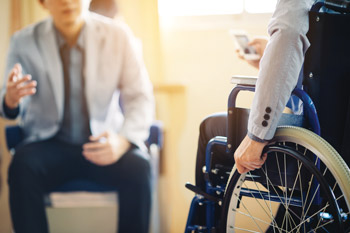Online reviews in a five-star culture
This issue also covers physicians with disability, conference coverage from the American Heart Association meeting, and rural health care.
Pretty much everything is reviewed online these days, from restaurants to mechanics to grocery stores to clothing. Physicians are not immune, with public online rating sites allowing patients to rank and rate their doctors in a variety of categories. These often unverified reviews can be highly complimentary or highly upsetting, and in many cases doctors have no recourse for combating them. Health systems, responding to consumer demand, have begun to post their own reviews online based on post-visit surveys, and while these reviews do reflect the experience of actual patients, they come with their own problems and biases. Since online reviews are here to stay, it's important to know more about what's behind them and how they work. Our story takes a deep dive into physicians' experience with online reviews and discusses how they could eventually be used for good in the physician-patient encounter.
Physicians with disability deal with unique challenges in their careers, from advocating for accommodations to educating colleagues about what they're able and unable to do. While the Americans with Disabilities Act, which turns 30 this year, has ushered in welcome changes, further improvements and increased awareness remain necessary. Physicians with different types of disability who trained in different decades discuss their experiences in training and in practice, with an eye toward future progress.
Our conference coverage is from the American Heart Association's 2019 Scientific Sessions, which were held in Philadelphia last November. The lead investigator of the Apple Heart Study discusses recent findings on using smartphones to diagnose afib, while other experts explain exactly how these devices work and weigh in what should be done with their data. Two experts debate the pros and cons of extending anticoagulation after provoked or unprovoked venous thromboembolism.
Another story addresses telemedicine and palliative care in rural areas, while yet another details an initiative to stop the spread of superbugs by collaboration across health care facilities. And last but certainly not least, learn more about William G. Kaelin Jr., MD, an ACP Member who shared the 2019 Nobel Prize in Physiology or Medicine for his work on cells' response to oxygen availability.
How do you feel about online reviews? Have your patients ever asked you to interpret their smartphone data? Let us know at immatters@acponline.org.
Sincerely,
Jennifer Kearney-Strouse
Executive Editor




